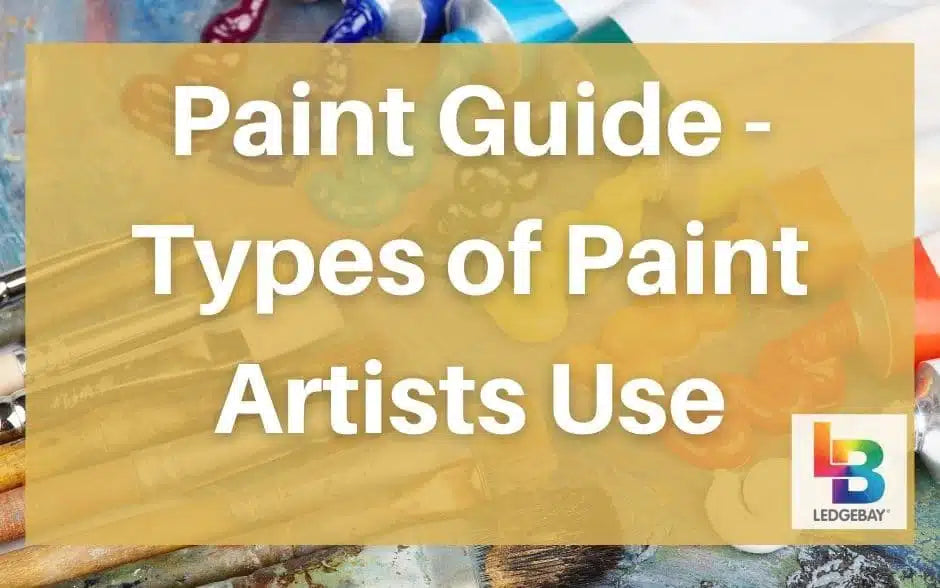Paint by numbers is an excellent way to unwind and tap into your artistic side. However, there might come a time when you find your old acrylic paints and paint pots dried out. This can be frustrating, but fear not! With a few simple techniques, you can rejuvenate your wholepaint by numbers kit and continue crafting your masterpiece.
[amazon box ="B0C6R7RV5W"] Dried-out paint is a frequently encountered problem, especially for those who enjoy indulging in the world of paint by numbers. This common issue arises when the paint pots, over time, lose their moisture and become dry and clumpy.
Dried-out paint is a frequently encountered problem, especially for those who enjoy indulging in the world of paint by numbers. This common issue arises when the paint pots, over time, lose their moisture and become dry and clumpy.
This can happen due to various reasons, including improper storage and sealing of the paint pots or prolonged exposure to air. When the leftover paint dries out, it can become challenging to work with and may not provide the desired results on the canvas.
The drying out ofpaint pots can be a frustrating experience , particularly when you're in the middle of a project or looking forward to starting a new one. However, the good news is that there are several effective methods to revive dried-out paint and make it usable again.
By understanding the causes of this issue and learning how to tackle it, you can ensure a smoother and more enjoyable paint by numbers experience. In the following sections, we'll explore the techniques to revive a dried paint all-out, paint by number kits and the preventive measures to keep it moist for longer periods. To successfully address the issue of dried-out paint in your paint by numbers projects, you'll need a few essential tools and materials. These items will help you revive the drying of dry paint, and ensure that once youfix dry paint everywhere, you can continue creating your artwork without interruptions. Here's what you should have on hand:
To successfully address the issue of dried-out paint in your paint by numbers projects, you'll need a few essential tools and materials. These items will help you revive the drying of dry paint, and ensure that once youfix dry paint everywhere, you can continue creating your artwork without interruptions. Here's what you should have on hand:
By having these tools and materials at your disposal, you'll be well-equipped to tackle the issue of dried-out paint and enjoy a seamless fresh paint, by numbers experience special skills. Each item serves a specific purpose flow aid in the process of reviving the dry paint, ensuring that you can continue working on your artistic creations with ease. Reviving dried-out paint for your paint by number kits or by numbers project requires a systematic approach to ensure that the paint becomes usable again. Follow these steps to bring hardened paint from your dried-out, paint by the number kit or pots back to life:
Reviving dried-out paint for your paint by number kits or by numbers project requires a systematic approach to ensure that the paint becomes usable again. Follow these steps to bring hardened paint from your dried-out, paint by the number kit or pots back to life:
[amazon box ="B083FCYCLP"] To avoid encountering the issue of dried-out paint in the future and ensure a smoother paint by numbers experience, it's essential to take preventive measures to keep your paint moist for longer periods. Here are some effective steps you can take:
To avoid encountering the issue of dried-out paint in the future and ensure a smoother paint by numbers experience, it's essential to take preventive measures to keep your paint moist for longer periods. Here are some effective steps you can take:
By implementing these preventive measures, you can extend the lifespan of your paint pots and enjoy a consistent and hassle-free paint by numbers experience. Additionally, proper storage and sealing practices go a long way in preserving the quality of your ownpaint by numbers kit and allowing you to fully immerse yourself in your artistic endeavors.
[amazon box ="B07R1939DN"] Embracing Imperfections: Incorporating Dried Paint in Your Artwork
Embracing Imperfections: Incorporating Dried Paint in Your Artwork
While dried-outpaint may initially seem like a setback in your paint by numbers journey , it can actually become an opportunity to add unique textures and effects to your artwork. Additionally, embracing these imperfections and incorporating them intentionally can result in stunning and visually captivating pieces. Here's how you can make the most of dried paint in your creations:
[amazon box ="B083FCVCS3"]
[amazon box ="B0C6R7RV5W"]
Understanding the Common Issue of Dried-Out Acrylic Paint
 Dried-out paint is a frequently encountered problem, especially for those who enjoy indulging in the world of paint by numbers. This common issue arises when the paint pots, over time, lose their moisture and become dry and clumpy.
Dried-out paint is a frequently encountered problem, especially for those who enjoy indulging in the world of paint by numbers. This common issue arises when the paint pots, over time, lose their moisture and become dry and clumpy.This can happen due to various reasons, including improper storage and sealing of the paint pots or prolonged exposure to air. When the leftover paint dries out, it can become challenging to work with and may not provide the desired results on the canvas.
The drying out ofpaint pots can be a frustrating experience , particularly when you're in the middle of a project or looking forward to starting a new one. However, the good news is that there are several effective methods to revive dried-out paint and make it usable again.
By understanding the causes of this issue and learning how to tackle it, you can ensure a smoother and more enjoyable paint by numbers experience. In the following sections, we'll explore the techniques to revive a dried paint all-out, paint by number kits and the preventive measures to keep it moist for longer periods.
Acrylic Paints: Tools and Materials You'll Need
 To successfully address the issue of dried-out paint in your paint by numbers projects, you'll need a few essential tools and materials. These items will help you revive the drying of dry paint, and ensure that once youfix dry paint everywhere, you can continue creating your artwork without interruptions. Here's what you should have on hand:
To successfully address the issue of dried-out paint in your paint by numbers projects, you'll need a few essential tools and materials. These items will help you revive the drying of dry paint, and ensure that once youfix dry paint everywhere, you can continue creating your artwork without interruptions. Here's what you should have on hand:Dried-Out Paint Pots
The main focus of your attention, these are the paint pots that have dried up paint is out and need to be revitalized.A Few Drops: Distilled Water
This is why warm water is an important component for reviving the dried-out paint. Distilled water is free from impurities and minerals that could in dried paints and potentially affect the paint's consistency.Palette or Mixing Surface
A used palette knife, brush or a mixing surface is crucial for blending the white acrylic paint with water. It provides you with a space to achieve the right paint consistency.Thin Paintbrushes
Thin paintbrushes will help you fix dry out with thick paint and mix the water with the dried-out paint effectively. They allow for precise control and thorough blending of dry paints.Airtight Containers or Palette Sealers
These containers or sealers for paints are vital for the paint container preventing future drying of the paint. They help maintain the moisture content of paints and keep the paint usable over time.By having these tools and materials at your disposal, you'll be well-equipped to tackle the issue of dried-out paint and enjoy a seamless fresh paint, by numbers experience special skills. Each item serves a specific purpose flow aid in the process of reviving the dry paint, ensuring that you can continue working on your artistic creations with ease.
Step-by-Step Guide to Reviving Dried Acrylic Paint
 Reviving dried-out paint for your paint by number kits or by numbers project requires a systematic approach to ensure that the paint becomes usable again. Follow these steps to bring hardened paint from your dried-out, paint by the number kit or pots back to life:
Reviving dried-out paint for your paint by number kits or by numbers project requires a systematic approach to ensure that the paint becomes usable again. Follow these steps to bring hardened paint from your dried-out, paint by the number kit or pots back to life:Prepare Your Workspace
Start by setting up your workspace with all the necessary tools and materials to dry acrylic paint. Make sure you have your dried-out paint pots, distilled water, palette or mixing surface, thin paintbrushes, and airtight containers or palette sealers.Inspect the Paint Pots
Examine the dried-out paint pots to assess the extent of drying of acrylic painting. Sometimes, only the top layer acrylic paint might be dry, while the paint underneath could still be salvageable.Add Distilled Water
Begin by adding a few drops of distilled water to the dried-out acrylic paint in the pots. Use a thin paintbrush to mix the water and paint thoroughly. Gradually add more and water based paint as needed while the brush is mixing.Achieve a Creamy Consistency
Keep adding warm water, and mixing until you achieve a creamy and smooth consistency. The goal is to restore all the paint back to a workable state, similar to its original texture required consistency.Test the Paint
Test the paint by brushing a small amount onto a piece of a paper towel. Observe how the paint flows and whether it retains its color intensity. This test will help you determine if the paint is ready for use.Adjust as Necessary
If the paint is still too dry, continue adding small amounts of distilled water and mixing until you achieve the desired consistency. Be cautious not to add too much water at once, as it could result in overly diluted paint.Blend Colors
If your project involves blending colors, you can follow a similar process. Add a small amount of water to first mix each color, mix them separately until they reach a smooth consistency, and then blend them on your palette to create the desired color gradient.Seal the Containers
After you've successfully revived the dried-out acrylic paint or acrylic medium, make sure to seal the containers or palette wells tightly after each painting session. This will help prevent acrylic paints from further drying and maintain the paint's moisture.[amazon box ="B083FCYCLP"]
Preventive Measures to Keep Paint Moist
 To avoid encountering the issue of dried-out paint in the future and ensure a smoother paint by numbers experience, it's essential to take preventive measures to keep your paint moist for longer periods. Here are some effective steps you can take:
To avoid encountering the issue of dried-out paint in the future and ensure a smoother paint by numbers experience, it's essential to take preventive measures to keep your paint moist for longer periods. Here are some effective steps you can take:Sealing the Paint Pots
After each painting session, make it a habit to seal the paint pots tightly. Additionally, this prevents air from the hard paint from entering the pots and causing the paint to dry out. You can use plastic wrap or specialized palette sealers designed to keep the paint airtight.Storing Paint Properly
Store your paint pots in a cool and dry place, away from direct sunlight or extreme temperatures. Furthermore, exposure to extreme heat, and sunlight can accelerate the drying process and affect the paint's texture and color quality. Additionally, a dark and moisture-free environment is ideal for preserving the paint's moisture.Using Palette Paper
If you use a palette for mixing colors, consider using palette paper or disposable palette sheets. Furthermore, these sheets can be placed on top of your palette, and they can be discarded after each painting session. Additionally, palette paper prevents the paint from drying onto the surface area your palette, making it easier to keep your paints moist.Misting with Water
If you're working on a project that spans multiple sessions, you can occasionally mist the paint with a fine mist of water. This helps maintain the paint's high temperature and moisture level and prevents it from drying out too quickly.Rehydrating as Needed
If you notice that some of dry paints in your paint pots are starting to dry out, you can apply the same techniques mentioned earlier to rehydrate the paint. Additionally, adding a few drops of distilled water and mixing it thoroughly can often bring the old paint out back to a usable consistency.Organize Your Workspace
Keeping your workspace organized can indirectly contribute to keeping your paint moist. Additionally, when your materials are neatly arranged and covered when not in use, it reduces the exposure of the paint to air and external elements.By implementing these preventive measures, you can extend the lifespan of your paint pots and enjoy a consistent and hassle-free paint by numbers experience. Additionally, proper storage and sealing practices go a long way in preserving the quality of your ownpaint by numbers kit and allowing you to fully immerse yourself in your artistic endeavors.
[amazon box ="B07R1939DN"]
Embracing Imperfections: Incorporating Dried Paint in Your Artwork
 Embracing Imperfections: Incorporating Dried Paint in Your Artwork
Embracing Imperfections: Incorporating Dried Paint in Your ArtworkWhile dried-outpaint may initially seem like a setback in your paint by numbers journey , it can actually become an opportunity to add unique textures and effects to your artwork. Additionally, embracing these imperfections and incorporating them intentionally can result in stunning and visually captivating pieces. Here's how you can make the most of dried paint in your creations:
Paint by Numbers Paint Dried Out: Textured Backgrounds
Use the dried-out paint to your advantage by creating textured backgrounds. Additionally, apply thedried paint with a palette knife or a dry brush technique to add depth and dimension to your canvas. Furthermore, these textures can serve as a foundation for your main subjects.Paint by Numbers Paint Dried Out: Layering Effects
Dried-out paint can createinteresting layering effects . Furthermore, apply a thin layer of rehydrated paint over dried patches to achieve a contrast between smooth and textured areas. Additionally, this technique can add a dynamic element to your artwork.Paint by Numbers Paint Dried Out: Highlighting Details
Intentionally use dried paint to highlight specific details in your painting. For instance, if you're working on a landscape, you can use dried paint to simulate the texture of rocks or rough terrain. Additionally, this creates a realistic and tactile feel to your artwork.Paint by Numbers Paint Dried Out: Mixed Media Approach
Consider incorporating other artistic mediums along with the dried-out paint. Additionally, colored pencils, markers, or even pastels can complement the texture of dried paint, resulting in a mixed media masterpiece.Paint by Numbers Paint Dried Out: Creating Visual Interest
Use dried paint to create focal points and visual interest in your composition. Additionally, the contrast between the smooth areas and the textured patches can draw the viewer's attention and make your artwork more engaging.Paint by Numbers Paint Dried Out: Experimentation and Exploration
Embracing dried-out paint encourages experimentation. Furthermore, try different techniques, such as scraping, splattering, or stippling, to see how the dried paint interacts with your canvas. Additionally, this process of exploration can lead to unexpected and remarkable outcomes.[amazon box ="B083FCVCS3"]











